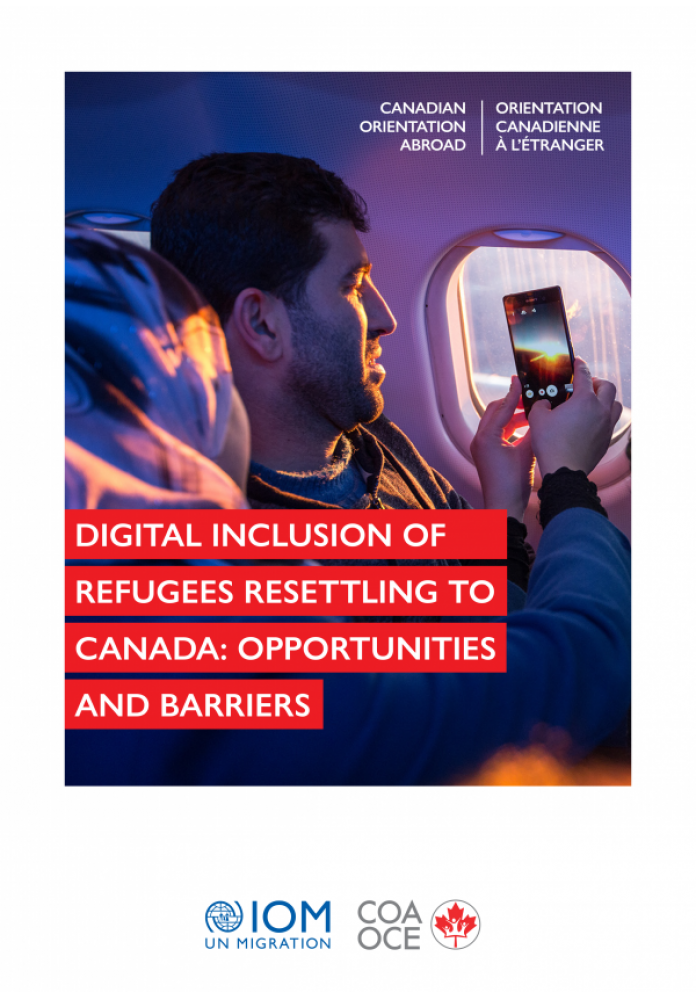Digital Inclusion of Refugees Resettling to Canada - Opportunities and Barriers Report

This research, done by the Canadian Orientation Abroad (COA) program to assess and understand both the barriers and enablers of refugee’s access, connectivity and ability to use digital training tools in the pre-arrival stage was supported by IRCC (Immigration and Refugees Canada). The goal was to know how to increase access to services during the resettlement process.
There is now broad recognition that connectivity and access to digital tools and services are fundamental to inclusion and participation in society. For refugees, they can be an essential lifeline in their journey, with many identifying smart phones and internet as important for a sense of safety and security as food, water and shelter. But, there are persistent and new barriers to usage among refugees that must be considered and addressed to prevent exacerbating the digital divide.
Research has shown that while many own mobile phones and often have reliable internet access, barriers such as cost, and lack of digital literacy and skills, combined with factors related to disability, location, individual context and gender need to be carefully considered and addressed to avoid the risk of excluding the most vulnerable as more digital approaches are adopted.
Barriers include: affordability, access, digital literacy, trust, privacy and security, policy and regulation, age, gender, disability, literacy levels, and lack of information in native languages.
It is important to note that digital access is not only about technology and introducing new digital opportunities for programming. It also offers a way through which refugees can exercise and stretch the boundaries of their agency in terms of accessing information to inform decisions and planning for movement or departure, learning and educational opportunities and supporting a sense of well-being and connectedness. Primary research undertaken from this report provides evidence of these trends and concepts in action and deeper insights into how they are impacting access to and use of digital technology by refugees.
Eight key recommendations were made about implementing digital tools and services that are accessible, impactful and inclusive, alongside the continued provision of in-person pre-arrival training for refugees resettling to Canada. These recommendations include:
- Recognition of and advocacy for the fundamental role that digital literacy and skills will play in the success of refugees after their arrival in Canada
- Integration of digital skills and digital literacy training, including online security as part of pre-arrival training
- Continued assessments of digital access and literacy across sites – to understand manage inclusion/exclusion and address particular needs
- Assessment of digital channels to reach refugees
- Developing a working group that includes both pre-departure and post-arrival orientation service providers
- Emphasis on the role of digital tools to assist and enhance, rather than replace in-person pre-departure orientation training
Excerpts taken from the report. Access and download the complete report here:
Findings from this report could be used by many organizations dealing with refugees and other newcomers, to make sure they develop and enhance digital literacy with their clients, to make sure they know how to access the local supports and programs available in the community.




